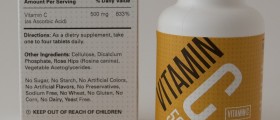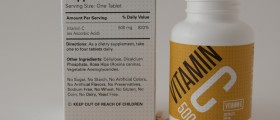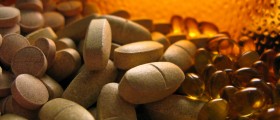
Vitamin E is a member of a group of fat-soluble vitamins. It is essential for human body and available in many foods. Vitamin E is considered a powerful antioxidant necessary for prevention of many disorders and diseases in the body. As antioxidant vitamin E prevents detrimental effects caused by free radicals. The effects are most significant when it comes to heart conditions and the occurrence of cancers.
Apart from its availability trough foods (eggs, milk, leafy vegetables etc.), vitamin E can be also taken in a form of supplements. However, since this vitamin belongs to fat-soluble vitamins its excessive intake may result in accumulation in the body and is associated with certain side effects.
Symptoms and signs of vitamin E toxicity may be similar to symptoms and signs of other medical condition and therefore proper taking of patient's medical history, particularly reporting whether the person has been taking vitamin supplements, can be of great help in setting the diagnosis.
Normal Dose vs. Toxic Dose
It is estimated how much vitamin E is allowed per day. This amount can be taken on daily bases without causing any side effects or even being toxic for the body in general. As for vitamin E supplements, it is recommended to take 15-20 International Units (IU) of vitamin E per day. 100-200 IU is considered more than necessary and studies have shown that intake of 400 IU may cause serious complications, among which the most severe one is definitely death. This is the reason why people should consult their health care provider prior opting for vitamin E supplements and they must stick to the prescribed dose never exceeding it.Clinical Characteristics of Vitamin E Overdose
Excess of vitamin E cannot be eliminated from the body as it is the case with water-soluble vitamins such as vitamin C. If there is too much of the vitamin in the body, it tends to accumulate in the liver, adipose tissue and muscles.
Vitamin E toxicity symptoms and signs start to occur once the amount of vitamin E in the body reaches certain level. People most commonly complain about headache, fatigue and feel nauseous. Gastrointestinal symptoms and signs of vitamin E toxicity include abdominal pain, diarrhea and gas. There may be additional problems with vision (blurred vision) and an individual becomes prone to internal bleeding.
In case of slight increase of vitamin E in one's body, the wound healing becomes slow, one may develop hypertension or severe fatigue.
More serious effects of increased intake of vitamin E may affect patients who are already using some medications. For example, patients on warfarin are not supposed to take vitamin E supplements. The combination of the two may result in internal bleeding. Combination of vitamin E and K is also worth evaluation.

















Your thoughts on this
Loading...